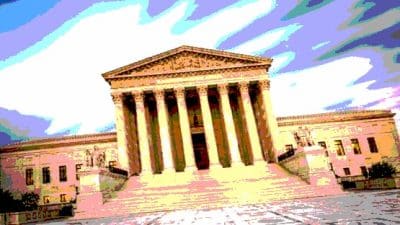– Remarks by the president after meeting with energy CEOs
– H1N1 preparedness summit set
– Statement from the President on the 45th anniversary of the Civil Rights Act
Remarks by the president after meeting with energy CEOs
Thursday, 2:57 p.m. EDT
THE PRESIDENT: Good afternoon, everybody. I just held a meeting with the CEOs of some of the most innovative energy companies in America to talk about growth and progress of a sector that represents a big piece of America’s economic future. As our economy adapts to the challenges of a new century, new ways of producing and saving and distributing energy offer a unique opportunity to create millions of jobs for the American people.
And obviously, this is a timely discussion, on a day of sobering news. The job figures released this morning show that we lost 467,000 jobs last month. And while the average loss of about 400,000 jobs per month this quarter is less devastating than the 700,000 per month that we lost in the previous quarter, and while there are continuing signs that the recession is slowing, obviously this is little comfort to all those Americans who’ve lost their jobs.
We’ve taken some extraordinary measures to blunt the hard edges of the worst recession of our lifetime, and to offer assistance to those who’ve borne the brunt of this economic storm. But as I’ve said from the moment that I walked into the door of this White House, it took years for us to get into this mess, and it will take us more than a few months to turn it around.
That’s why the discussion that we had today is so important. It’s men and women like these who will help lead us out of this recession and into a better future. My job — and our job as a government — is to do whatever we can to unleash the great, generative powers of the American economy by encouraging their efforts.
And I’m absolutely confident that we can, at this period of difficulty, prove once again what this nation can achieve when challenged. And I’m confident that we’re not only going to recover from this recession in the short term, but we’re going to prosper in the long term. To do that, we have to act now to build a new foundation for lasting growth. And energy is one of the pillars of this new foundation, essential both to our recovery and our long-term prosperity.
I’m pleased to say that we’ve achieved more in the past few months to create a new clean energy economy than we had achieved in many decades before. The recovery plan will double our country’s supply of renewable energy, and is already creating new clean energy jobs. Thanks to a remarkable partnership between automakers, autoworkers, environmental advocates, and states, we also set in motion a new national policy to increase gas mileage and decrease carbon pollution for all new cars and trucks sold in this country, which is going to save us 1.8 billion barrels of oil.
And last Friday, the House of Representatives passed an extraordinary piece of legislation that would make renewable energy the profitable kind of energy in America. It will reduce our dependence on foreign oil. It will prevent the worst consequences of climate change. And above all, it holds the promise of millions of new jobs — jobs, by the way, that can’t be outsourced.
The CEOs standing behind me know a lot about these kinds of companies. These are folks whose companies are helping to lead the transformation towards a clean energy future. Even as we face tough economic times, even as we continue to lose jobs, the CEOs here told me that they’re looking to hire new people, in some cases to double or even triple in size over the next few years. They are making money and they are helping their customers save money on the energy front.
So these companies are vivid examples of the kind of future we can create, but it’s now up to the Senate to continue the work that was begun in the House to forge this more prosperous future. We’re going to need to set aside the posturing and the politics — and when we put aside the old ideological debates, then our choice is clear. It’s a choice between slow decline and renewed prosperity. It’s a choice between the past and the future.
The American people I believe want us to make the right choice, and I’m confident that the Senate will. For at every juncture in our history, we’ve chosen to seize big opportunities — rather than fear big challenges. We’ve chosen to take responsibility. We’ve chosen to honor the sacrifices of those who came before us — and fulfill our obligations to generations to come. That’s what we’re going to do this time, as well.
Thank you very much, everybody.
Q Mr. President, do you have a message for the small businesses on health and economy?
THE PRESIDENT: The message for small businesses is many of these businesses started as small businesses and they’re now getting to be big businesses because of the extraordinary opportunities that are out there.
Another message is that they should probably contact some of these CEOs because it turns out they can save small businesses and large businesses alike up to 20 or 30 percent on their energy usage.
And when you hear the innovation that’s taking place — everything from LED lighting that can save a huge amount on energy costs to new concrete materials that last longer and are waterproofed from the inside out, and that can mean that bridges and roads and buildings can last 20 or 30 years longer than using conventional concrete; when you look at what’s being done with solar energy right now in places like Houston and Florida; and the fact that many of these companies are exporting their goods and their services, but unfortunately, their biggest markets right now are Europe and Japan because we haven’t done enough to emphasize clean energy in our own country — that gets you excited about the future.
And one of the things that I’ve consistently talked about since I took office, and on a day where we see that our economy is still having a tough time getting moving, is we’re going to have to shoot for the future and not look backwards.
So much of the debate around health care, so much of the debate around energy, has been based on this idea that somehow if we stand still and we don’t do anything that we’re going to be better off. And that’s just not how this world works. It’s certainly not how the modern economy works. We know we’re going to have to change how we use energy.
We know we’re going to have to change how we operate our health care systems. We know that we’re going to have to change how we train our young people to compete in this new global economy. And so to make the argument that somehow we should just lock in on the status quo or perpetuate the same policies that got us into this mess in the first place, and that that somehow is going to solve our problems, just doesn’t make any sense.
And what these folks are all about is the future, and that’s what America has always been about. We are not folks who are scared of the future or look backwards. We always meet the challenges by moving forward. And that’s what I think is going to happen this time, as well.
Thanks, guys.
Q Mr. President, when are you going to get solar panels and a wind turbine at the White House, sir?
THE PRESIDENT: I was just talking to Secretary Chu about how he is going to consult with these outstanding folks to figure out how we can improve energy efficiency here.
Q When will that happen, Mr. President?
THE PRESIDENT: I just told you — we’re moving. Come on, guys. (Laughter.) I don’t have a date certain.
H1N1 preparedness summit set
The White House today announced that Health and Human Services Secretary Kathleen Sebelius, Homeland Security Secretary Janet Napolitano, Education Secretary Arne Duncan, and Homeland Security Advisor John Brennan will host an all-day H1N1 Flu Preparedness Summit with states to further prepare this nation for the possibility of a more severe outbreak of H1N1 flu. The Summit will be held on July 9, 2009 at the Natcher Conference Center at the National Institutes of Health in Bethesda, Maryland.
WHO: Kathleen Sebelius, HHS Secretary
Janet Napolitano, DHS Secreatary
Arne Duncan, Education Secretary
John Brennan, National Security Advisor
WHAT: H1NI Flu Preparedness Summit
WHEN: Thursday, July 9, 2009 at 8:30 a.m.
WHERE: Natcher Conference Center Auditorium (Bldg. 45)
National Institutes of Health
9000 Rockville Pike
Bethesda, Md. 20892
The H1N1 flu virus continues to circulate in this country and in at least 100 other countries around the world – especially in the Southern Hemisphere, where flu season is underway.
“Scientists and public health experts forecast that the impact of H1N1 may well worsen in the fall – when the regular flu season hits, or even earlier, when schools start to open – which is only five or six weeks away in some cases,” Secretary Sebelius said. “The goal of the Summit is to launch a national influenza campaign by bringing federal, state and local officials, emergency managers, educators and others together with the nation’s public health experts to build on and tailor states’ existing pandemic plans, share lessons learned and best practices during the spring and summer H1N1 wave, and discuss preparedness priorities.”
“The federal government remains vigilant and well coordinated with state, local, and international partners as we prepare for all possibilities as to how the H1N1 flu virus may impact us this fall,” said Secretary Napolitano.
“Prevention is everyone’s business. Parents, children, teachers, school leaders, communities, government and businesses, we need do our part individually and collectively prevent the spread of the flu virus,” said U.S. Secretary of Education Arne Duncan. “We are emphasizing safety and the need to continue learning. We will continue following guidance from the Centers for Disease Control and Prevention and encouraging schools and districts to be in close communication with their local public health authorities and political leadership.”
Statement from the President on the 45th anniversary of the Civil Rights Act
Forty-five years ago today, President Johnson signed into law historic legislation that moved America closer toward fulfilling the dream of our founding – a dream of opportunity, equality, and justice for all. The Civil Rights Act of 1964 ended legal discrimination, helping grant all Americans equal justice under the law – no matter what their gender or the color of their skin.
The Civil Rights Act was born during Freedom Summer 1963, but its passage was only possible because generations of Americans of all backgrounds stood up, sat down, and marched in freedom’s cause. Once it was signed into law, a renewed pledge was made to all Americans not to deny any man a seat at a lunch counter, not to deny any woman an opportunity in the workplace, and not to deny any child a chance to make the most of their God-given potential.
But while the Civil Rights Act opened doors of freedom and opportunity, we know that far too many inequities and barriers remain in the African-American community and across this country. And we must continue to break down these barriers in our laws, our policies, and our hearts so that we can not only fulfill the full promise of the Civil Rights Act, but perfect the union that our founders created two hundred and thirty-three years ago this week.










